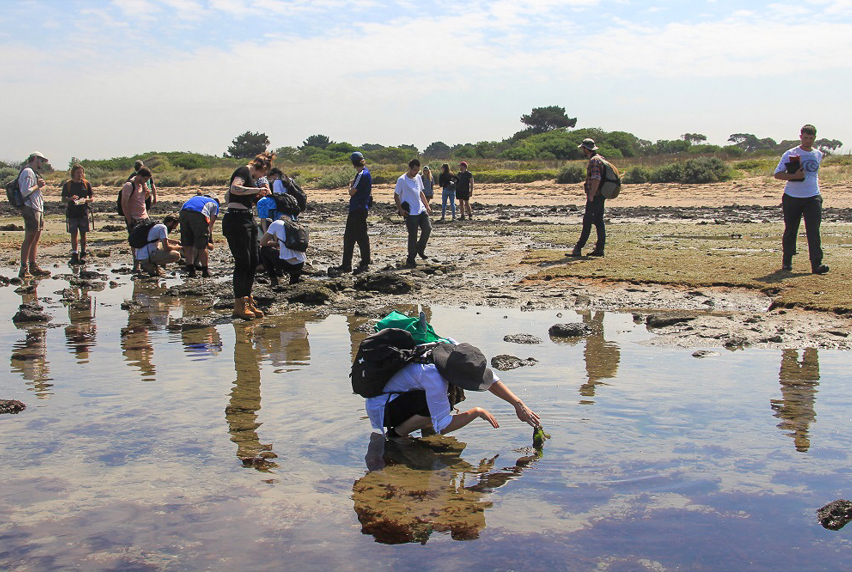Conservation students working to protect land and sea

Melbourne Polytechnic Conservation and Land Management students are making a real difference with their valuable work on conservation projects around the state of Victoria.
The work that diploma students have contributed to supporting Parks Victoria projects has led to significant environmental findings and helped secure funding for future conservation work.
Students have been monitoring deer and pest fauna at two Victorian locations and the surveys they have produced has laid the groundwork for further conservation projects.
Not your average classroom
Jennifer Gibson, Technical Officer for Conservation and Land Management and Horticulture at the Epping campus, says students head out into the field continuously to conduct surveys such as monitoring deer at Wallaby Creek, and foxes and threatened turtle species at Horseshoe Lagoon.
At the creek catchment area, the students donned night vision goggles and tucked themselves into deer hides to count the invasive deer species and document the impact these animals have on the local environment. At the lagoon, they plotted turtle nesting sites, conducted a feral animal survey and used remote sensing cameras that identified foxes as the main predator.
Connected to industry
The students worked with Parks Victoria’s Kinglake ranger Tony Fitzgerald, who used the students’ findings to help secure substantial further funding for the projects.
He says: ‘It’s no accident that we have attracted $150,000 over the last three years in a DELWP (Department of Environment, Land, Water and Planning) Biodiversity Response program grant to control deer in Wallaby Creek catchment as we had solid baseline data from the Melbourne Polytechnic survey work to provide estimates of deer numbers, and documentation of the impacts of the deer.’
‘Similarly, the survey work at Horseshoe Lagoon enabled us to base a successful $50,000 funding bid to the DELWP Native Vegetation Improvement program. This has enabled further weed control, fox control and threatened turtle species (Macquarie and Broad-shelled) monitoring and revegetation of the lagoon’s fringing aquatic vegetation.’
‘In both instances, I highly value the assistance that Melbourne Polytechnic has provided to Parks Victoria as the principal land manager at these sites. Melbourne Polytechnic’s ability to assist in field-based survey, monitoring and revegetation is a real benefit to Parks Victoria.’
Students will participate in more real-world project experiences as further opportunities align with their studies.
Protecting our shoreline
In 2021, students made an important discovery at Point Cooke Marine Sanctuary – identifying a large number of a newly introduced marine pest species; Asian shore crabs. The location of their find is significant, as the species had been detected in October last year at Mount Martha, on the other side of Port Phillip Bay.
Aquaculture lecturer Andrew Christie, who coordinated the work with Parks Victoria, says no Asian Shore Crabs were found at Point Cook in January or February, but in March the students ‘discovered 85 of them!’
‘Once we had zeroed in on their habitat we were able to find many more of them. One student in particular turned up a very sizeable quantity; he knew exactly where to look, and was able to guide the rest of the group.’
Diploma of Conservation and Land Management



